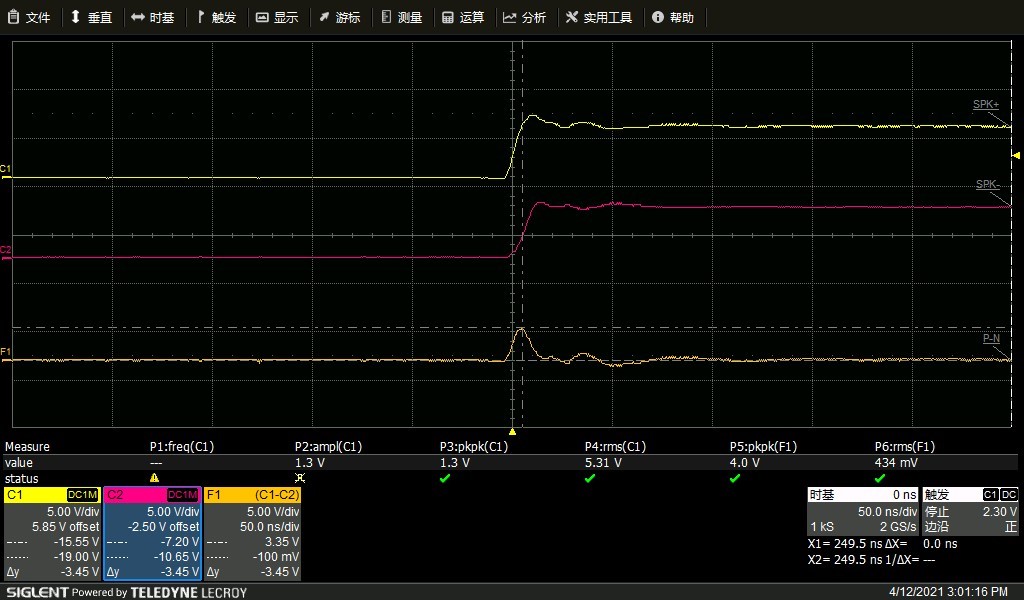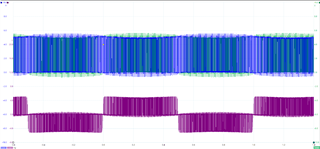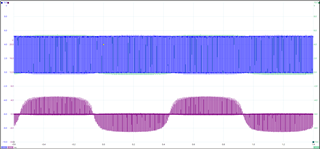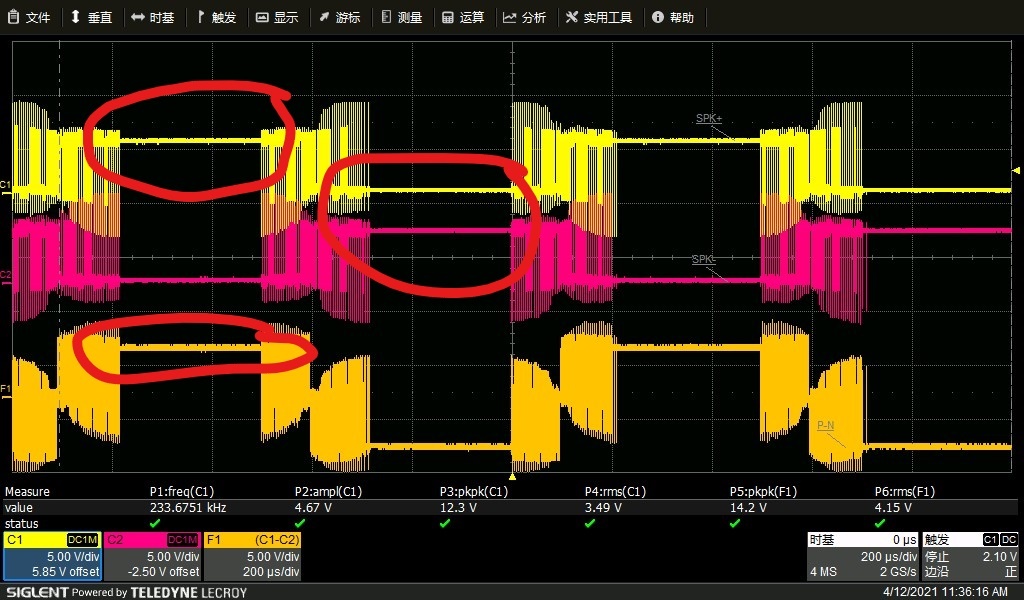Hi team,
customer give 1kHz sine single to input the TAS2505, the found the output have some DC voltage ,the reamin time is about 0.3ms.
see the below, channel 1 is SPK+ ;channel 2 is SPK-; channel F is (SPK+) - (SPK-), you can see the output have a DC voltage.
1. Could you help comment why there have DC voltage? and does it will be demage speaker? the input sine is continues.
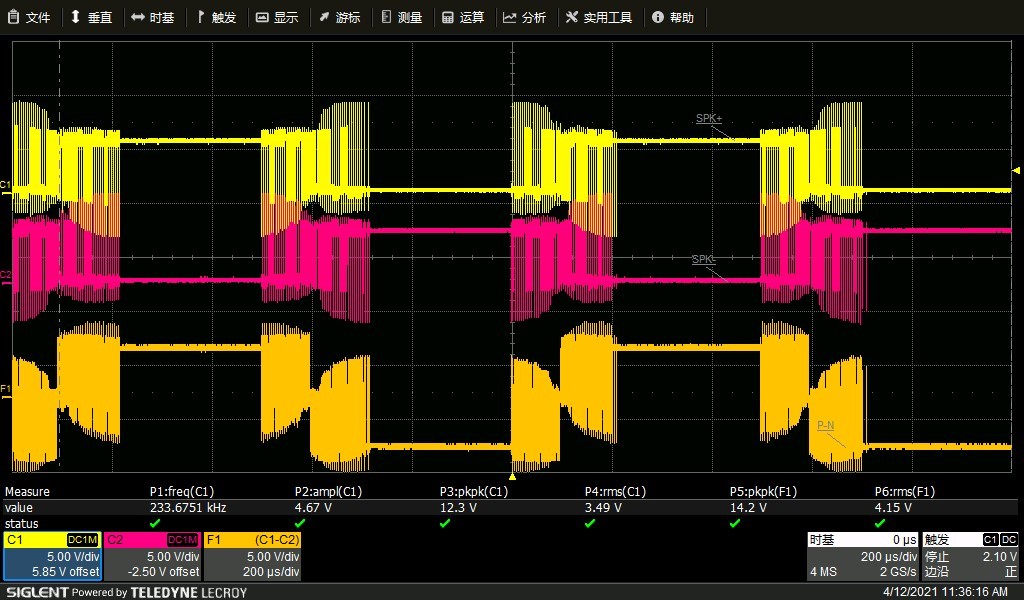
2. we also test no input signal, the output of TAS2505. found the riase time of SPK+ and SPK- is not sync, therefore, it will have a small different voltage, see the below.
The questions is does this small voltage will demage speaker? how to remove it?
attached TAS2505 scheamatic.
